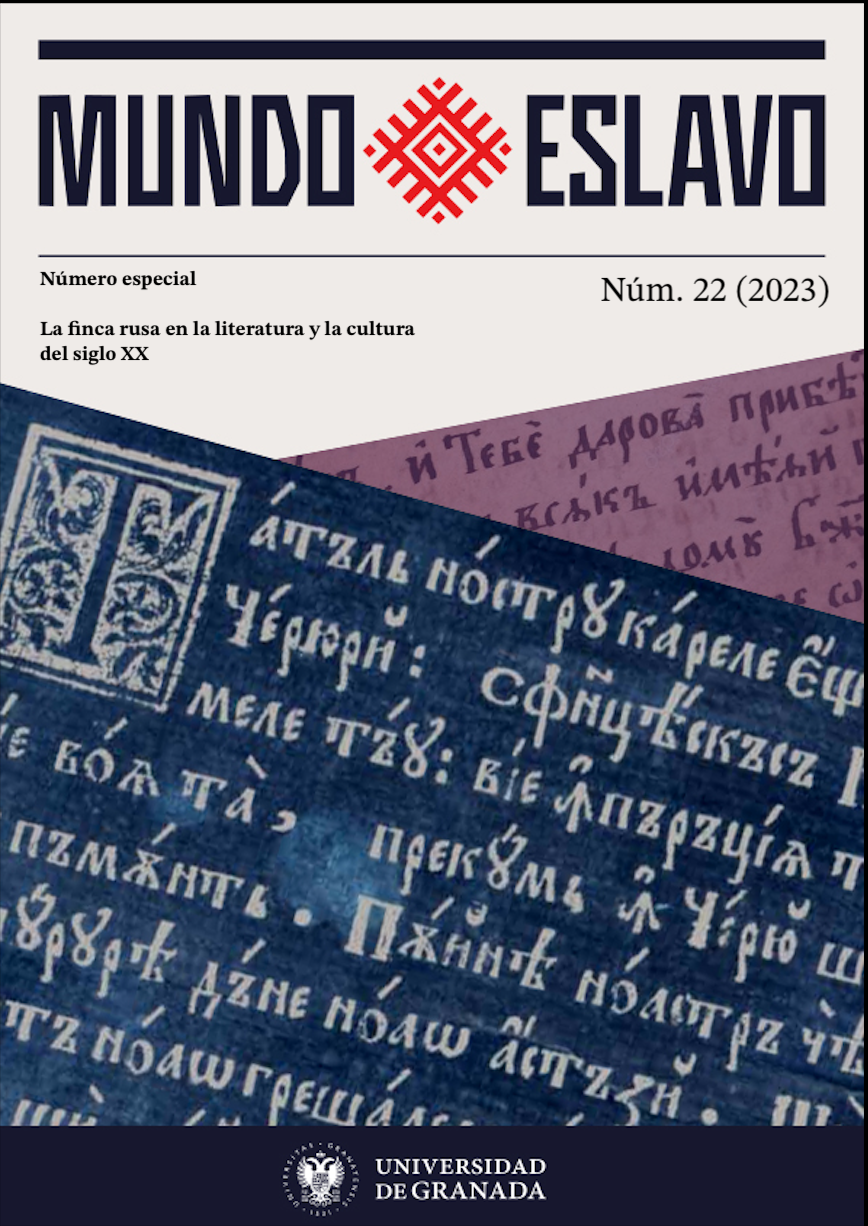Рецепция «усадебного текста» русской классики в «Повести о жизни» К.Г. Паустовского
DOI:
https://doi.org/10.30827/meslav.22.25432Abstract
The article deals with the reception of some images and motifs of Russian classics, connected with the existence of the country estate, in the “Tale of Life” by K.G. Paustovsky, the position of the author-narrator in relation to Russian literature of the 19th century is noted, the attention of the autobiographical hero Paustovsky to the work of famous Russian writers, first of all, L.N. Tolstoy and F.M. Dostoevsky. The features of the temporal organization of the “Tale of Life” are indicated, the convergence of the specifics and method of narration in Paustovsky’s book and Tolstoy’s first autobiographical trilogy is analyzed. The work reveals similarities in the description of the estate life and the idea of it among the Russian classics and Paustovsky, comprehends selected allusions, reminiscences, gives examples of the effect of spontaneous literary resonance. The great importance of the category of memory in the description of estate life is stated. Based on the analysis of a number of episodes of “The Tale of Life”, the article proves that Paustovsky subtly and insightfully shows the connection of the estate culture with the Orthodox faith, with the religious consciousness of the passing time, illustrates the simultaneous impoverishment of both.
Downloads
Downloads
Published
How to Cite
Issue
Section
License
Copyright (c) 2023 Mundo Eslavo

This work is licensed under a Creative Commons Attribution-NonCommercial-ShareAlike 4.0 International License.

CC BY-SA: This license allows reusers to distribute, remix, adapt, and build upon the material in any medium or format, so long as attribution is given to the creator. The license allows for commercial use. If you remix, adapt, or build upon the material, you must license the modified material under identical terms.
CC BY-SA includes the following elements:
BY ![]() – Credit must be given to the creator
– Credit must be given to the creator
SA ![]() – Adaptations must be shared under the same terms
– Adaptations must be shared under the same terms
Authors who publish with this journal agree to the following terms:
1. Authors retain copyright and grant the journal right of first publication with the work simultaneously licensed under a Creative Commons Attribution License that allows others to share the work with an acknowledgement of the work's authorship and initial publication in this journal.
2. Authors are able to enter into separate, additional contractual arrangements for the non-exclusive distribution of the journal's published version of the work (e.g., post it to an institutional repository or publish it in a book), with an acknowledgement of its initial publication in this journal.
3. Authors are permitted and encouraged to post their work online (e.g., in institutional repositories or on their website) prior to and during the submission process, as it can lead to productive exchanges, as well as earlier and greater citation of published work (See The Effect of Open Access).













